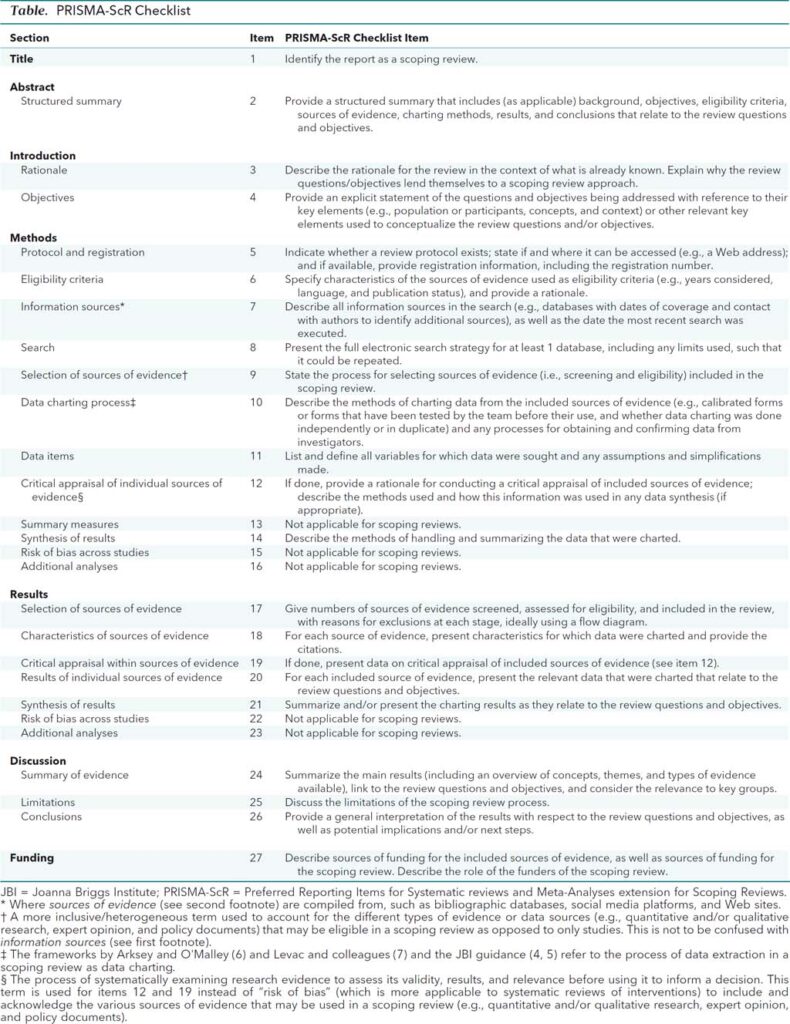Best practices for conducting a scoping review

Scoping reviews are a type of knowledge synthesis, which follow a systematic approach to map evidence on a topic and identify main concepts, theories, sources, and knowledge gaps. The Canadian Institutes of Health Research (CIHR) defines a scoping review as:
‘exploratory projects that systematically map the literature available on a topic, identifying key concepts, theories, sources of evidence and gaps in the research’ and notes ‘They are often preliminary to full syntheses, undertaken when feasibility is a concern – either because the potentially relevant literature is thought to be especially vast and diverse (varying by method, theoretical orientation or discipline) or there is a suspicion that not enough literature exists.’
Why would someone want to do a scoping review compared to a systematic review?
Systematic reviews are useful for answering clearly defined questions (for example, “Does this intervention improve specified outcomes when compared with a given comparator in this population?”), whereas scoping reviews are useful for answering much broader questions (such as “What is the nature of the evidence for this intervention?” or “What is known about this concept?”).
https://www.acpjournals.org/doi/10.7326/M18-0850
However, not enough researchers know how to conduct a rigorous scoping review.
One well-known approach for reporting the methodology used in a scoping review is the PRISMA-ScR (Preferred Reporting Items for Systematic reviews and Meta-Analyses extension for Scoping Reviews) methodology. This PRISMA-ScR (Tricco et al. 2018) has a reporting checklist shown below.
https://www.acpjournals.org/doi/10.7326/M18-0850
PRISMA-ScR is focused largely on reporting the methodology and results of a scoping review. To actually learn how to do a scoping review, I would point you to the Joanna Briggs Institute (JBI). The JBI website has a number of best practice documents concerning scoping reviews. There is a comprehensive JBI Manual for Evidence Synthesis that was most recently updated in March 2024. Other helpful documents include:
Cochrane Training has a helpful video describing what scoping review is and provides some examples.




